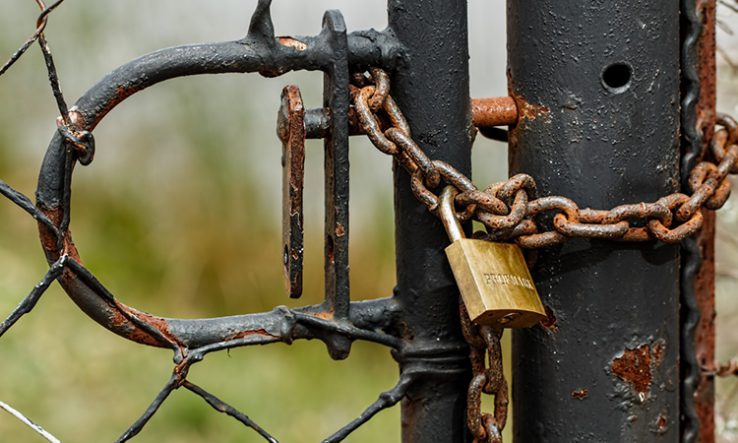
Certain non-Covid-19 activities are being declared essential during lockdown on a case-by-case basis
Some research activities are taking place in locked-down South Africa, with permits offered for essential business on a case-by-case basis. But as the lockdown levels lift it’s unclear what qualifies and when urgent research can start again—and scientists whose work is time-sensitive are getting desperate.
Last week, the science and higher education minister said only Covid-19 related research could happen on campus under level 4 of lockdown which began on 1 May. But he said nothing about time-sensitive or field-based research. This week, Research Professional Africa spoke to scientists who described samples rotting in laboratories before they could be analysed, or time-series of climate data that may end up with gaps for the first time in decades.
The confusion is widespread. Anecdotal evidence suggests that while some institutions have issued a blanket ban on any research activities that can’t be done remotely from home (with the exception of Covid-19 research), others seem to be issuing permits for certain activities. The people who spoke about the latter did not want their identities, nor that of their institutions, revealed.
One source said managing directors of NRF national facilities had been notified that they could grant essential services permits this week, and that the same message had been passed to university leaders too.
Beverley Damonse, NRF group executive for science engagement and Corporate Relations, confirmed that “heads of entities are the ones who can declare certain aspects of their operations as providing essential services”. She said the NRF “cannot comment on exact time frames for re-implementation of time-sensitive fieldwork and lab work, as this lies within the ambit of individual institutional management.”
But it’s not clear how institutional directors should approach the issuing of such permits. The Department of Science and Innovation told Research Professional Africa on 7 May that “no samples should go to waste”. The chemicals used in their preservation were declared essential goods in regulations gazetted on 17 April, and their transport to laboratories is an essential service.
Essential goods and services declared in the 17 April gazette also include feed for laboratory and farm animals, raw materials and technical products used for R&D and the manufacture of products supporting the response to Covid-19, and production of isotopes and radio-pharmaceutical products. The DSI has met with research institutions to communicate these allowances, it says.
Some insight into what is deemed essential can be gleaned from what is allowed at some NRF entities. For example, the South African Radio Astronomy Observatory was declared essential by ministerial decree. This covers its Rosebank, Hartebeesthoek, Carnarvon and Observatory sites, and includes: critical maintenance and operation of the ‘National Key Points’ at HartRAO and the Square Kilometre Array Site; IT maintenance remotely managed from Cape Town; maintenance and operation of monitoring services for satellite navigation systems for the support of air-traffic and related navigation services; and operations in Observatory to coordinate the country’s National Ventilator Project.
Other NRF facilities have been designated as providing essential services by the NRF chief executive or the Department of Science and Innovation, says Damonse. The NRF is also talking to the Department of Science and Innovation as to possibly declaring national facilities working in the environmental and biodiversity spaces as essential, she said.
Regardless of these activities, the impact of South Africa’s indefinite, multi-graded lockdown on research has become a growing concern for South Africa’s scientists in recent weeks. In a preprint submitted to the South African Journal of Science for publication, four researchers describe research during lockdown and social distancing as “the neglected elephant in the room”.
The four authors—David Hedding from the University of South Africa, Michelle Greve and Greg Breetzke from the University of Pretoria, and Bettine Jansen van Vuuren from the University of Johannesburg—write that these effects will range “from the honours student who now has no access to a laboratory on campus to run their experiment to the A-rated scientist who will struggle to achieve the objectives of funded research and may fail to meet international obligations.”
They write that while nobody will emerge from the current hardships unscathed, postgraduate students may suffer especially hard. No-cost extensions to grants, while well-intentioned, might create an exodus from academia, they note: “Background and socioeconomic circumstances may simply not allow [students] to spend a year idle and re-enter the pipeline next year.”
On Twitter, the South African Environmental Observation Network Graduate Student Network begged Nzimande to clarify the provisions made for research-based postgraduate students. “These are students who would require access to lab or field equipment and permission for travel to field sites, which are often located in protected areas for the collection of time-dependent field samples,” the self-organised group said in a post. It added that the maintenance of field equipment and instruments has also been impacted by the lockdown.
NRF’s Damonse said it is providing information to research institutions through Universities South Africa with regard to the repurposing of grants, extensions of application deadlines, and extensions of the funding year and contractual obligations. She also urged worried academics and students to contact the NRF.